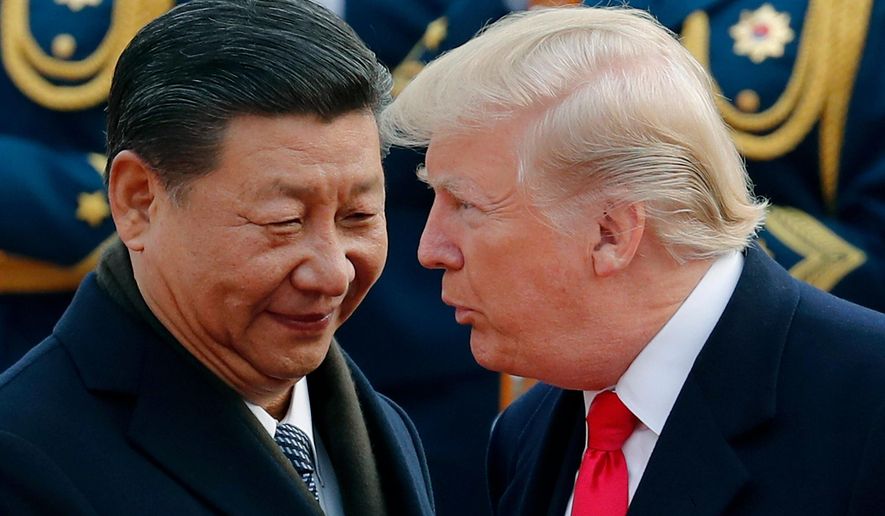Trump administration officials announced Sunday that a “very substantial framework” has been reached with China on a deal aimed at easing trade tensions between the world’s two largest economies.
Under the deal, the U.S. is withdrawing its threat to impose a 100% tariff on Chinese imports, while Beijing has agreed to suspend its planned restrictions on rare earth exports.
Administration officials emphasized that if President Trump and Chinese President Xi Jinping agreed to the deal, it would deliver tangible benefits for American farmers, including the soybean industry.
“I think we’ve reached a substantial framework for the two leaders who will meet in Korea next Thursday,” Treasury Secretary Scott Bessent said on ABC’s “This Week.”
The comments followed Mr. Bessent’s and U.S. Trade Representative Jamieson Greer’s meeting with Chinese Vice Premier He Lifeng and China’s top trade negotiator, Li Chenggang, on the sidelines of the Association of Southeast Asian Nations summit in Kuala Lumpur, Malaysia.
“The president had given me maximum leverage when he threatened 100% tariffs if the Chinese impose their rare earth global export control. So I think we have averted that,” Mr. Bessent said. “We also agreed on substantial agriculture purchases for U.S. farmers.”
Mr. Bessent added that China has agreed to cooperate on controlling precursor chemicals used in the production of fentanyl, a synthetic opioid fueling a deadly crisis in the U.S.
“So I would say that it was a very good meeting overall,” he said.
The announcement comes just days before Mr. Trump and Mr. Jinping are scheduled to meet on the sidelines of the pivotal Asian summit in South Korea.
The Trump-Xi meeting is the centerpiece of a weeklong diplomatic tour across Asia.
On Sunday, Mr. Trump made his first stop in Malaysia, where he witnessed the signing of a peace agreement between Cambodian and Thai leaders — an accord he said could save “millions of lives.”
“This is a momentous day for all of the people of Southeast Asia as we sign a historic agreement to end the military conflict between Cambodia and Thailand,” Mr. Trump said. “As you know, this is one of eight wars that my administration has ended in just eight months. We are averaging one a month.”
Mr. Trump also signed economic agreements with Cambodia, Malaysia and Thailand, some of which aimed to increase trade in critical minerals.
All three deals keep the 19% reciprocal tariff in place that the Trump administration enacted in April.
The U.S. wants to rely less on China, which has used limited exports of key components in technology manufacturing as a bargaining chip in trade talks.
“It’s very important that we cooperate as willing partners with each other to ensure that we can have smooth supply chains, secure supply chains, for the quality of life, for our people, and security,” Mr. Greer said.
The president is scheduled to travel on Monday to Tokyo to meet Japanese Prime Minister Sanae Takaichi before heading to South Korea for talks with President Lee Jae Myung. He is expected to deliver remarks at the Asia-Pacific Economic Cooperation summit.
The diplomatic tour is expected to culminate in Thursday’s highly anticipated meeting between Mr. Trump and Mr. Xi — a moment that could reshape the trajectory of U.S.-China relations.
• This article is based in part on wire service reports.
• Seth McLaughlin can be reached at smclaughlin@washingtontimes.com.




Please read our comment policy before commenting.